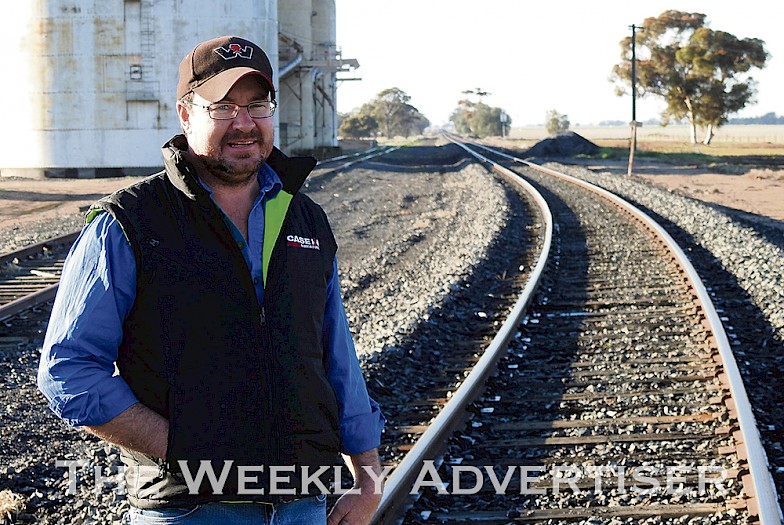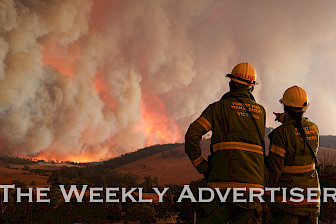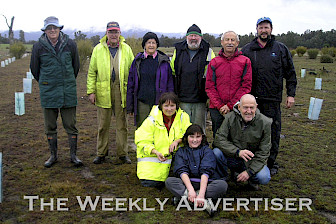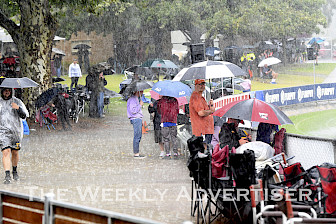Project leaders promised to maximise western Victoria’s rail network to significantly reduce travel time taken to shift freight to key ports and ultimately take trucks off roads.
Maintenance works were completed on the Hopetoun to Murtoa line in ‘stage one’ and Yelta through to Maryborough was converted from broad gauge to standard gauge in ‘stage two’ of the project.
Works to upgrade Manangatang and Sea Lake lines as part of ‘stage three’ is yet to be announced.
However, a Victoria Auditor-General report released in March criticised the state’s handling of the Murray Basin Rail Project upgrade as ‘deficient’ and ‘inadequate’.
Victorian Farmers Federation expressed concerns upgrades to the Yelta line were incomplete and freight movement was still far slower than promised.
Grains Group Wimmera representative and Minyip farmer Ryan Milgate relies on the Yelta line to shift grain from Donald to Melbourne’s ports.
He said the incomplete upgrades to the line was causing major delays for all user groups and sending freight via trucks was currently more efficient.
“Last year there was a lot of grain just sitting at GrainCorp in Donald because they couldn’t shift it on rail like they normally would,” he said.
“It’s hard to get your head around how sending 40 trucks up the road is more effective than one train, but that’s the way it is. At the moment it’s also a lot cheaper to send it on the trucks.
“It’s putting the burden back onto the farmers.
“Buyers aren’t interested in buying off sites that are slow and inefficient.”
Mr Milgate said there needed to be more clarity around the future scope of the project.
“VFF has been banging doors down, trying to get answers and we’re getting absolutely nothing,” he said.
“There’s no transparency around where the project is at.
“Agriculture is the Wimmera’s key industry.
“If we’re doing well, we’re buying vehicles, going to town, renovating the house – it flows right through the economy.
In some way, shape or form people in the community will feel the effects if this project is incomplete.
It flows
through everything”
– Ryan Milgate
“If we’re doing well, we’re buying vehicles, going to town, renovating the house – it flows right through the economy.
“In some way, shape or form people in the community will feel the effects if this project is incomplete. It flows through everything.”
VFF president David Jochinke has concerns the project, if left incomplete, will stump future economic growth across the region.
He said the longer the project stalled, the more likely future works on other lines in desperate need of upgrading across the Wimmera and Mallee would be held off.
“Lines like the Rainbow line, which is in quite poor condition, needs to be brought up to those same standards, but it isn’t in the current scope of the conversation,” he said.
“It’s all linked. Just because you’ve got a great line in the Wimmera doesn’t mean the line to Portland is fantastic.
“We’re only operating competitively through Melbourne and Geelong. We also want the Maroona line upgraded.”
Mr Jochinke said it was likely to have a flow-on effect to the broader community.
“For the whole region to prosper, that includes farmers and rural communities and even people just using the roads, this project is critical,” he said.
“It hurts everyone in the community.”
Mr Jochinke said an inadequate rail system was ultimately costing farmers more to shift grain.
Victorian Minister for Transport Infrastructure spokeswoman Hayley Bester said a revised business case for the Murray Basin Rail Project was complete and sent to the Federal Government.
“The Murray Basin Rail Project has already delivered benefits for the freight industry, but we know that there is more work to be done,” she said.
“We’re working closely with the Federal Government and freight industry to review the business case for the project and to jointly deliver the next steps.”
The entire June 24, 2020 edition of The Weekly Advertiser is available online. READ IT HERE!
The entire June 24, 2020 edition of AgLife is available online. READ IT HERE!






